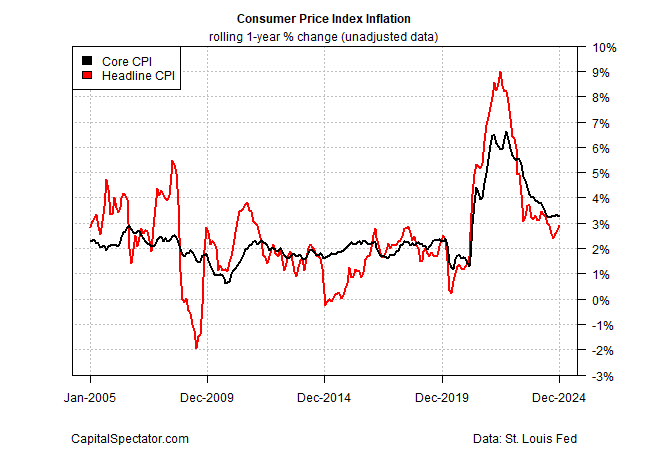IonQ CRO Alameddine Rima sells $4.6m in shares
On his first day as president, Donald Trump announced bold plans to reshape economic policy. His ideas for revising US priorities are as brash and audacious as they are controversial and contested in some quarters.
Imposing new tariffs are among the more conspicuous changes that the 47th president is considering. On Monday, he said that 25% tariffs on Canada and Mexico could start as soon as Feb. 1. The start date marks a delay from campaign rhetoric when he promised to impose tariffs on his first day.
Reporters at the White House asked Trump if he was prepared to impose tariffs on all imports coming into the US — he said: “We may. But we’re not ready for that yet.”
The president also punted on imposing higher tariffs on China. Instead, he ordered his administration to investigate trade with the world’s second-largest economy and determine if Beijing had fulfilled obligations in a deal signed with the first Trump administration.
In his inauguration speech yesterday, Trump said: “I will direct all members of my cabinet to marshal the vast powers at their disposal to defeat what was record inflation and rapidly bring down costs and prices.”
Inflation, in fact, has fallen sharply over the past two years, although it’s turned sticky lately and remains moderately above the Federal Reserve’s 2% target.
The question is whether sharply higher tariffs on the biggest US trading partners are counterproductive in the pursuit of lowering inflation further.

UBS CEO Sergio Ermotti today advises that “Tariffs will probably not really help inflation to come down. And therefore I don’t see [interest] rates coming down as fast as people believe.”
Consumers appear to agree. The University of Michigan’s January survey of consumer sentiment reflects concerns that broadly targeted tariffs that Trump has promised will raise prices for households. “We see evidence in this survey that consumers expect tariffs to raise the prices of many types of goods,” says Oliver Allen, senior US economist at Pantheon Macroeconomics.
“In general, a tax from tariffs, or any other policy, creates a deadweight loss to the economy,” writes LPL’s chief economist. “Businesses and consumers feel the impact; employment typically shrinks, and our foreign trading partners often retaliate.”
The Cato Institute’s Scott Lincicome also paints a cautious outlook on expecting tariffs to help tame inflation. “It’s misguided to claim, as some misguided souls recently have, that protective tariffs don’t increase US prices.” He reasons: “The basic logic and economics here are again straightforward: If tariffs didn’t increase import prices, then they wouldn’t protect U.S. companies from that foreign competition; and if those U.S. companies were already selling at or below the import price, then they wouldn’t need a tariff to change American importers’ and consumers’ behavior.”
Part of Trump’s plan to lower inflation appears related to increasing energy production. He declared a “national energy emergency” and said the country would “drill, baby, drill” to lift oil and gas production to “unleash affordable and reliable American energy.”
The only problem is that the US is already the world’s leading producer of oil so it’s debatable if higher oil and gas production will lower energy prices and inflation. A related headwind: some analysts advise that an oversupply of oil and gas exists.
This much is clear: big changes are coming. It’s unclear how all of Trump’s plans will impact inflation, but for good or ill Trump 2.0 has started and the status quo looks set to give way.
